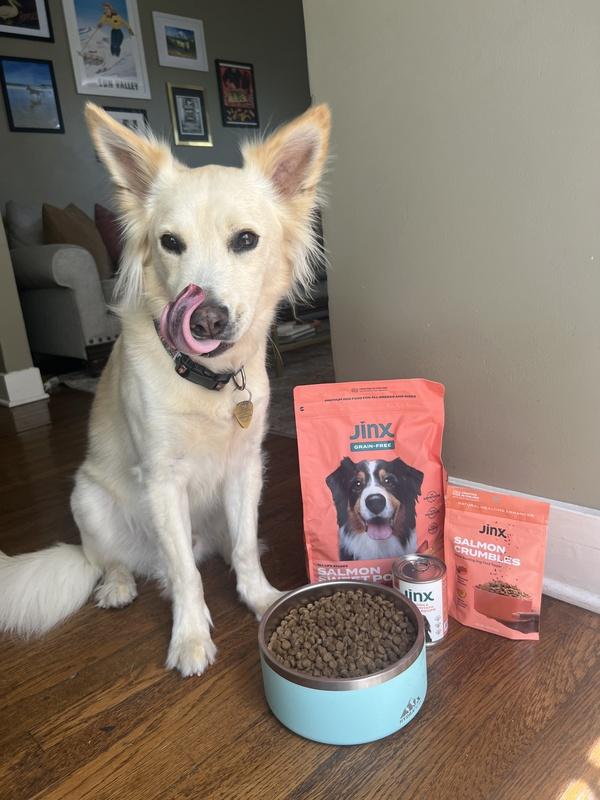Discover how to choosing the right food for your dogs age and breed is crucial for their overall health and well-being. With so many options available, it can be overwhelming to determine the best diet for your furry friend. This guide will help you navigate the process and ensure your dog receives the best nutrition tailored to their specific needs.
Understanding Your Dog’s Nutritional Needs
Age-Specific Nutrition
- Puppies: Puppies require a diet rich in protein, fat, and essential nutrients to support their rapid growth and development. Look for puppy-specific formulas that include DHA for brain development and calcium for strong bones.
- Adult Dogs: Adult dogs need a balanced diet that maintains their weight and supports their energy levels. Choose a food that provides a mix of protein, fats, and carbohydrates, with added vitamins and minerals for overall health.
- Senior Dogs: As dogs age, their metabolism slows down, and they may become less active. Senior dog foods typically have fewer calories and more fiber to support digestion, along with supplements like glucosamine for joint health.
Breed-Specific Nutrition
- Small Breeds: Small breed dogs have faster metabolisms and higher energy needs. Choosing the right food for your dogs that is specifically formulated for small breeds, with smaller kibble sizes and higher calorie content.
- Large Breeds: Large breed dogs are prone to joint issues and may benefit from foods with added glucosamine and chondroitin. These dogs also need controlled calorie intake to prevent obesity, which can exacerbate joint problems.
- Working Breeds: Dogs with high energy levels or those that perform tasks like herding, hunting, or agility need a diet rich in protein and fat to sustain their activity levels.
Key Factors to Consider When Choosing Dog Food
Ingredients
- Protein Sources: Look for high-quality protein sources like chicken, beef, fish, or lamb. Avoid foods with unnamed meat by-products or fillers.
- Carbohydrates: Whole grains like brown rice, oats, and barley provide energy and are more nutritious than refined grains.
- Fats: Healthy fats from sources like fish oil and flaxseed support skin and coat health and provide essential fatty acids.

Nutritional Balance
- Ensure the dog food is labeled as “complete and balanced,” which indicates it meets the AAFCO (Association of American Feed Control Officials) standards for nutrient content.
- Avoid artificial preservatives, colors, and flavors. Natural preservatives like tocopherols (vitamin E) are a healthier option.
Special Dietary Needs
- Food Allergies and Sensitivities: Some dogs may have allergies or sensitivities to certain ingredients. Hypoallergenic diets or limited ingredient diets can help identify and manage these issues.
- Weight Management: For overweight dogs, look for foods labeled as “light” or “low calorie,” and consider a weight management formula to help them achieve and maintain a healthy weight.
- Specific Health Conditions: Dogs with specific health conditions, such as kidney disease, diabetes, or digestive issues, may require specialized diets. Consult with your veterinarian for recommendations tailored to your dog’s needs.

Tips for Transitioning to a New Food
- Gradual Transition: When introducing a new food, do so gradually over 7-10 days. Start by mixing a small amount of the new food with the old food and gradually increase the proportion of the new food.
- Monitor for Reactions: Watch for any signs of digestive upset, such as vomiting, diarrhea, or changes in stool consistency. If any issues arise, consult with your veterinarian.
- Stick to a Routine: Consistency is key. Feed your dog at the same times each day and avoid giving too many treats or table scraps, which can disrupt their nutritional balance.
Conclusion
Choosing the right food for your dogs age and breed is essential for ensuring their best dog health. By understanding their specific nutritional needs and selecting high-quality, balanced diets, you can help your furry friend live a long, healthy, and happy life. Always consult with your veterinarian for personalized recommendations and adjustments to your dog’s diet as they grow and their needs change.
Incorporate these tips and guidelines to make informed decisions and provide the best possible care for your beloved pet. Remember, the right nutrition is the foundation of your dog’s overall health and well-being.











